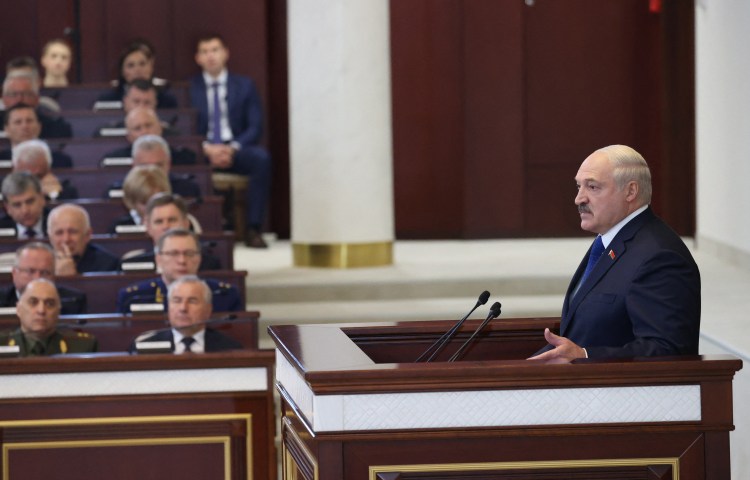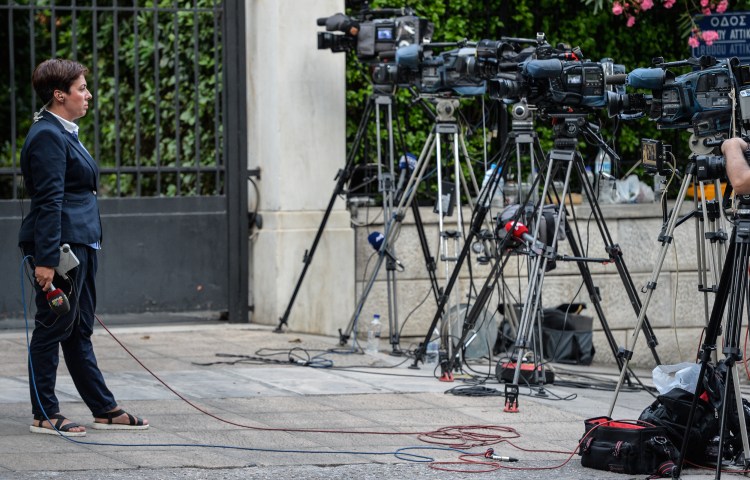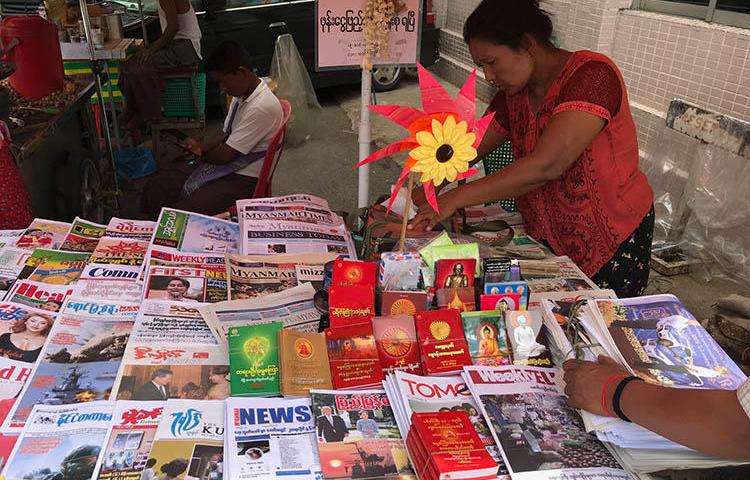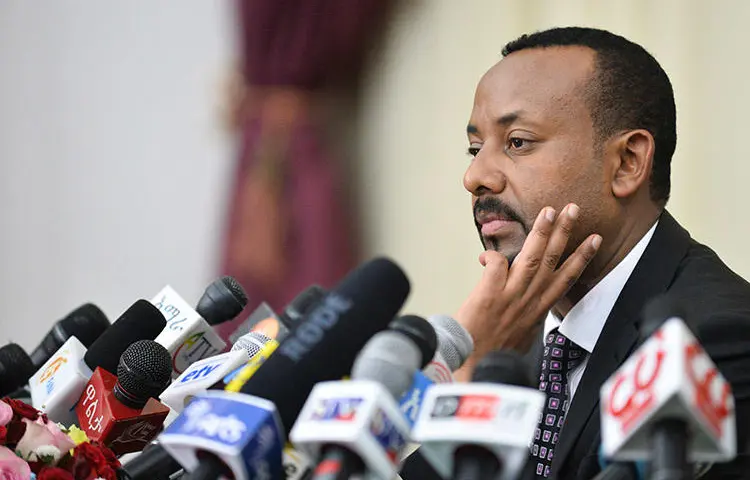
At least 7 journalists detained in Ethiopia on terror allegations
Nairobi, April 9, 2025—Ethiopian authorities should drop terrorism investigations into at least seven journalists from the privately owned Ethiopian Broadcasting Service (EBS) who were detained over what authorities said was a fabricated documentary, the Committee to Protect Journalists said Wednesday. Police arrested the journalists over a March 23 episode of “Addis Meiraf,” which has since…

CPJ concerned by Kazakhstan’s restrictive new media accreditation
New York, September 3, 2024—The Committee to Protect Journalists is concerned that recent changes to Kazakhstan’s domestic media accreditation regulations and proposed changes to foreign media accreditation could be used to silence critical journalists. “New and proposed amendments to Kazakhstan’s accreditation regulations are excessive and open too many doors to censorship. Instead of the greater…

New Belarusian media law allows for bans on foreign media
New York, July 6, 2023—In response to Belarusian President Aleksandr Lukashenko signing into law of a bill strengthening control on the media on Saturday, July 1, the Committee to Protect Journalists issued the following statement: “Belarus’ new media law translates long-standing arbitrary practices of silencing dissent and independent reporting into the legal sphere,” said Carlos…

New Greek criminal code amendment threatens journalists with jail for spreading ‘false’ information
Berlin, December 8, 2021 — Greek lawmakers should revoke an amendment to the country’s criminal code that threatens journalists with prison sentences for spreading what the prosecution deems “false” information, the Committee to Protect Journalists said today. On November 11, 2021, Greek lawmakers approved an amendment to Article 191 of the country´s criminal code that…

From conflict zones to courtrooms, Myanmar’s journalists are under fire
Hopes for greater press freedom when Myanmar moved to quasi-democratic rule were quickly quashed with the jailing in 2017 of two Reuters reporters. Wa Lone and Kyaw Soe Oo have their freedom again, but journalists and press freedom activists who met with CPJ’s Senior Southeast Asia Representative Shawn Crispin in Yangon in June said that…

Albania’s journalists tread fine line when covering organized crime, politics
The intersection of organized crime, corruption and politics in Albania is impacting the country’s press. During a joint mission by a coalition of press freedom organizations to Tirana in June, CPJ Europe Correspondent Attila Mong spoke with journalists about challenges including threats, attacks, political interference, and legal harassment.

Human Rights Council should address Tanzania crackdown
The Committee to Protect Journalists and 37 other non-governmental organizations today sent a letter to member and observer states of the United Nations Human Rights Council, asking them to address the crackdown on human rights in Tanzania at the 41st session of the council.

Mexico’s press question president’s commitment to press advertising reform
When Andrés Manuel López Obrador won Mexico’s presidential elections last year with a promise to drastically cut the millions of dollars the government spends on press advertising each year, it appeared to signal the end to an opaque system that has been criticized as a way for governments to encourage favorable coverage.

Under Abiy, Ethiopia’s media have more freedom but challenges remain
During a trip to Addis Ababa in January, it was impossible to miss the signs that Ethiopian media are enjoying unprecedented freedom. A flurry of new publications were on the streets. At a public forum that CPJ attended, journalists spoke about positive reforms, but also openly criticized their lack of access to the government. At…

Nazarbayev’s long rule leaves toxic legacy for Kazakhstan’s media
In 2011, I observed an astonishing spectacle in the Respublika newspaper offices in Almaty, Kazakhstan’s financial capital. Journalists were putting a modern-day twist on samizdat, a practice in the Soviet Union whereby dissidents laboriously copied illicit material to circumvent censorship.